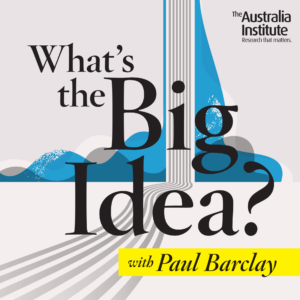Safeguarding the ability to increase emissions
Labor’s climate bill cleared the Senate last week. It’s a pretty modest bill, and doesn’t include any measures to actually reduce emissions in the private sector. That’s where the Safeguard Mechanism comes in – which is a voluntary scheme that affects the nation’s biggest industrial emitters, and is the Government’s main policy it will use to get to those emission reduction goals.
This was recorded on Tuesday 13th September 2022 and things may have changed since recording.
The Australia Institute // @theausinstitute
Host: Ebony Bennett, Deputy Director, the Australia Institute // @ebony_bennett
Guest: Polly Hemming, Senior Researcher, Climate & Energy Program, the Australia Institute // @pollyjhemming
Producer: Jennifer Macey // @jennifermacey
Edited by: Emily Perkins
Theme Music: Pulse and Thrum; additional music by Blue Dot Sessions
Between the Lines Newsletter
The biggest stories and the best analysis from the team at the Australia Institute, delivered to your inbox every fortnight.
You might also like
The Safeguard Mechanism’s pro-fossil flaws – explained
Governments work hard to ensure that Australian climate policy seems effective to media and voters, while simultaneously ensuring it does nothing to limit the key thing that is wrecking the climate – fossil fuel expansion.
The Safeguard Mechanism helps gas companies take the piss
The Government’s Safeguard Mechanism is supposed to limit emissions; instead, it just lets companies cheat.
We need political courage, not caution | Polly Hemming
When it comes to solving the biggest national problems, a bit of courage leaves political caution for dead. Now’s not the time for politeness.




